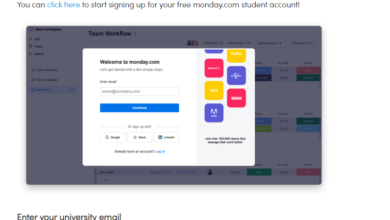4 Things Job Candidates Are Looking For

Let’s face it: the job markets of today are light years away from the ideal of work the so-called traditional workforce is used to. Merely the rise of remote work has invoked tectonic shifts in business trends, and start-ups have added fuel to it.
As a result, employees must offer rather different kinds of perks nowadays, if they hope to attract talents and keep their employees loyal.
“Talents” are another innovation. In the simplest of terms, these would be the employees that keep a business growing. But, seeing as this definition is rather vague and prone to different interpretations, it shouldn’t be taken at face value.
Overall, for a business to remain competitive and attract a skilled and engaged workforce, many adjustments are needed, starting with managers’ obsolete mindsets… which sometimes may prove impossible.
From employees’ perspectives, four chief advantages top the list of priorities:
- flexibility
- up-to-date tech
- detailed onboarding
- security and privacy
Let’s take a look at each of these.
1. Job Flexibility
Flexibility simply must be mentioned first, because this is one of the biggest changes remote work has brought forth. Freelancers and digital nomads are growing in size rapidly, so businesses definitely should consider offering a flexible work model.
There are six of those:
- Partially remote work, with flexible office space – no permanent offices; rented flex space used for periodic collaboration (but not connectivity)
- Almost entirely on premises – limited remote work, large office space the majority of managers and workers
- Partially remote work, multiple hubs – multiple offices with the workforce dispersed among them
- Partially remote work, large office space – the majority of managers and workers spend most, but not all, of their time at the office
- Almost entirely off premises – mostly remote work with no office space
- Multiple microhubs – management and employees are dispersed across small microhubs located in different cities (or countries, depending on the scope of your business operations)
Flexible contract types go hand in hand with remote hybrid work models. If you’re hiring remote teams, especially worldwide, you should allow for different benefits. For example, a person from India and a digital nomad traveling who knows where may need to comply with different taxation rules. As a result, some remote workers are sole proprietors, others look for long-term jobs for one company, and others still may well be relying on multiple clients as freelancers in their respective countries.
Definitely re-think your business’ flexibility priorities.
2. Up-to-Date Technology
In these fast-paced times when people rely on new technologies way too much, it goes without saying that a serious business simply has to keep up with the times.
First and foremost, you should make sure to offer the latest tech, anywhere and everywhere.
While this seems logical, sometimes it’s not an easy task. E.g., managing frontline workers has proven to be rather lacking, both in terms of management’s competencies, and proper apps and tools. Consider using a GPS time clock to make things easier for your workers.
That’s why it’s important to start with modernizing your management teams.
Lastly, stay up to date with current management trends. Currently, trending are:
- IoT for asset management
- Cloud-based software for remote work
- Artificial intelligence for business automation
- Inventory management software for supply chains
3. Detailed Onboarding
Continued education is a perk every business should offer. Keeping in mind that learning is not what it used to be, either, and mostly takes place online nowadays, there’s no reason why you shouldn’t provide all of your employees with a chance for success.
From eLearning to mLearning and from gamification to AR learning, everyone can polish their skills in their spare time or otherwise.
However, don’t forget that learning starts from onboarding! Better onboarding practices should be a priority as you’d want all of your employees to be on the same page ASAP.
4. Security and Privacy
Data security is of paramount importance in these hectic digital times. Not only should you make sure your business is taking all precautions, but you should also educate the workforce on these matters.
There are many ways how this can be done and one of the easiest (and fastest!) is to create a series of online courses. To get the best out of them, market them skillfully. Here are some ideas to get you started:
- Email marketing
- Optimizing your website to avoid joining a membership site (or you can do both)
- Starting a blog to advertise your courses
- Boosting your social media presence to advertise your course
- Creating a sales pipeline to advertise your course
- Making use of client testimonials
- Making use of influencer reviews
Key Takeaways
There’s much and more to be done to become the best workplace for your employees. Start small and grow big!
For starters, consider the best hybrid work model and offer as many contract types as you possibly can. Provide continual learning and up-to-date tech to all employees and educate your workforce on sustainability.
Other things may be added as needed. Listen to employee feedback for best results!




